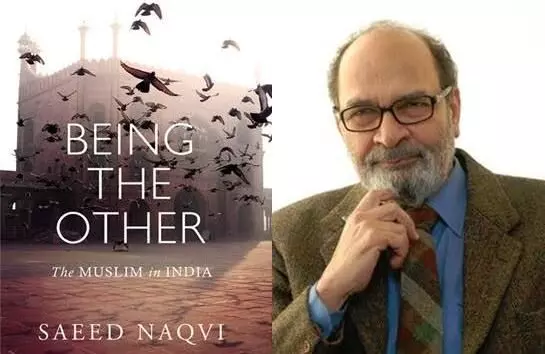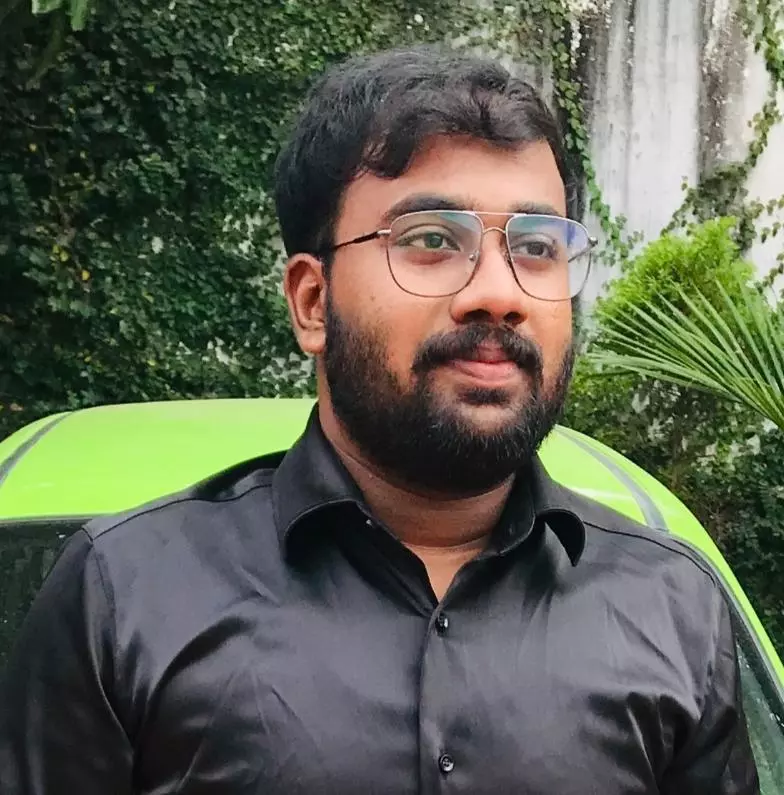

Book Review: Saeed Naqvi's The 'Othering' of 'Muslims' in India
text_fields"When I began writing this book I intended it to be a memoir. However, in its final form, a part of it is a procession of images, 'scratches on my mind'. The rest of it comprises my observations and eyewitness accounts of various seminal events in contemporary Indian history that have a bearing on Muslims", Saeed Naqvi writes. In seven brief themes, 'Being The Other, The Muslim in India' lays a path on how systematic 'othering' of Muslims is taking place since independence. Naqvi narrates how the Hindu-Muslim divide is deepening through his experience as a reporter who travelled the length and breadth of India over four decades.
"The irony is that you never
considered me your own;
You only claimed me, until
I was a stranger to everybody".
(Being The Other, Saeed Naqvi)
Awadh, Mangoes and Partition
'Oh my Allah, bestow on my brother a son like Lord Krishna', Naqvi recollects his mother's favourite Sohar. It's a song sung in the Awadh region when a woman has been carrying for seven months. Hence he is proud to be brought up in the heart of Awadh's syncretic culture, i.e Mustafabad in modern-day Uttar Pradesh. "Nehru was a sensitive subject within the family", Naqvi writes. His uncle, Wasi Naqvi became the first Congress MLA from Rae Bareli during the general elections of 1952. He says that it was fortunate for him to grew up in a liberal and secular environment.
Naqvi narrates the socio-political history of Awadh from the early 1700s, the Sunni-Shia divide and landlordism. These facts are scattered across the first seventy pages of the book as he shifts from one thematic observation to another as he continues to bring back memories of the mangoes of Mustafabad. He is narrating a tale about how families and societies wish to preserve tradition and keep alive practices to which they are emotionally linked.
He was seven years old at the time of the India-Pakistan partition from the same colonial womb. "The Nehru-Jinnah personality clash was not a negligible factor when it came to events that led to Partition", Naqvi writes. He further portrays the post-partition mayhem through the eyes of Maulana Azad pinned in his book, 'India Wins Freedom'. Naqvi says that there is no evidence that there was much thought given to Indian Muslims and their plight by Mountbatten, Gandhiji, Nehru, Patel and Azad. So he is solidifying why Indian Muslims have to cope almost daily with a biased state.
Meenakshipuram, Babri Masjid and Riots
Naqvi narrates the incident of Dalits' conversion to Islam in the village of Meenakshipuram, Tamil Nadu. Many issues further followed as journalists started to quote it as a 'forcible conversion'. Through the words of villagers, Naqvi clarifies that the conversion is a result of the caste oppression they were facing." Had Meenakshipuram happened in the heart of north India, the ramifications would have been different", Naqvi writes. He even says that the Muslim presence in north India has been portrayed as aggressive and dominant, but the situation in the south is different.
Hence, Naqvi is well aware of the differences in the social situation of Muslims in India from a geopolitical perspective. So he thoroughly illustrates the evolving communal picture of north India after the demolition of Barbri Masjid and the growing insecurities among the Muslims. With this incident on 6 December 1992, Naqvi is connecting the dots of India's communal politics from the British colonial period till the Muzaffarnagar riots of August 2013.
He is asserting that the British were the first to exploit the Hindu-Muslim divisions in the nineteenth and twentieth centuries. Then in the run-up to Independence, and its aftermath, India's greatest leaders and successive governments, whether formed by the Congress of BJP failed to prevent tragic events like communal riots in Gujarat(1969 and 2002), Bombay(1992-1993), the breaking of Babri Masjid(1992) and so on. The fearless journalist in him recognizes all the communal violence as a calculated political act.
Prime Ministers, Kashmir and Terror
"Vajpayee belonged to a party which regarded Indian Muslims as the Other. But he recognized that if the country was to come together and move forward, the Muslims would have to be reassured and integrated into the idea of India and Bharat", Naqvi writes. From the political observations, he says that every prime minister from Nehru till Manmohan Singh had made mistakes by compromising with the Hindu fundamentalists. Through the prime minister's we have so far, Naqvi is narrating the political history of Kashmir late 1940s till the beginning of the Modi era. This personal-political memoir of Naqvi was written three years before the special status of Kashmir was revoked. Anyway, he says that it will be very difficult to find a happy ending to the tragedy of Kashmir.
"After 9/11 and 26/11 there is declining sympathy among the majority population for Muslim youth who are falsely pickup up as terrorists", Naqvi writes. He narrates a short political history of Western conflict between the three Abrahamic religions and how they evolved into fake encounters and atrocities against the Muslim community. Throughout the book, Naqvi explains the way how Muslims are marginalised in India because of communal politics and to the end he states the global terror leashed upon the Muslims by the West. I hoped he could have mentioned the violent extremism and radicalization happening within political Islam which is a threat globally faced by Muslims to co-exist peacefully.
This is a must-read political memoir of Saeed Naqvi as it represents 180 million Indian Muslims who love their country and fully invested in it, but with the communal propaganda and divisive politics, they are marginalised and betrayed. I would also suggest reading Hilal Ahmed's 'Siyasi Muslims' and Muslims in Indian Cities edited by Laurent Gayer and Christophe Jaffrelot, to understand in-depth about the Indian Muslims.





















